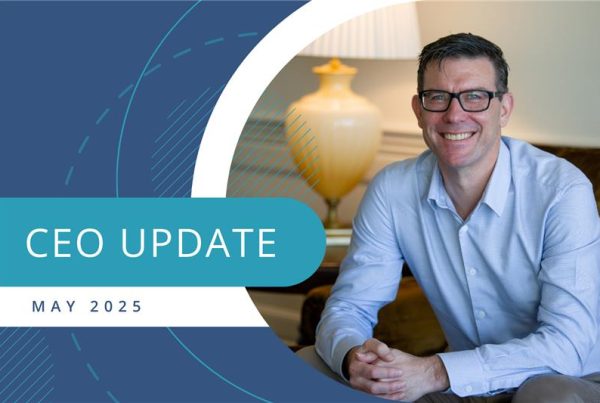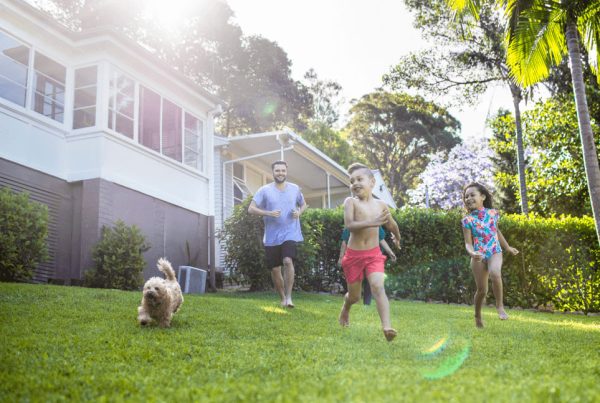
Superannuation and financial services lawyer Michelle Levy recently led the Quality of Advice Review, which advised the Federal Government on how to make financial advice more accessible and affordable for consumers. Her findings resulted in meaningful reforms, which are being integrated by the Albanese Government. In addition to being a partner at Allens, Michelle is an advocate for a fairer model of home ownership. She spoke to HOPE Housing about how superannuation funds could help more Australians into housing.
As an experienced superannuation lawyer, what do you think the current trends towards decreased homeownership could mean for super funds and retiring consumers?
The whole superannuation system proceeds on the basis that people enter retirement owning their home. With that becoming more and more difficult and more Australians retiring without a home or with a mortgage, the purpose that the government wants superannuation to serve is no longer being met.
In my view, people need a home before they can worry about saving for their retirement. And if you don’t have a home, we have an age pension, which is more appropriate than somebody taking their superannuation and then using it to pay rent.
What are the potential impacts of this shift towards long-term renting on community stability and the financial security of individuals in retirement?
We all know about the insecurity of renting and when you’re older, that must be particularly difficult. I have a sister who is still renting and doesn’t feel very secure. She’s a teacher who hasn’t been able to get into the property market – a situation faced by many essential workers across Australia. Despite having secure employment and a steady income, she’s been locked out, which is so unfair. You need security and the sense of a home and permanence; those things are vitally important.
We’re also likely to see retirees paying a large part of their income from superannuation in rent. Some will end up with assets that count towards an asset test and income that counts towards an income test, and depending on how much they retire with, of course, they might end up not eligible for an age pension and end up using their super to pay rent.
You put forward a submission to a Senate Economics References Committee inquiry into improving consumer experiences, choice, and outcomes in Australia’s retirement system about super funds helping retirees purchase a home. What is your proposal?
My proposition is a home would be purchased using a person’s superannuation balance, and the superannuation fund puts up the rest of the cost. The retiree would live in that home – I would like to think without rent. There’s still a return to the fund when the person sells their house or when they die and the rest of the equity goes to the estate of the person or their dependents, in the ordinary way as a house does. The person is also going to be eligible for an age pension in that situation.
Is this something you’d like to see applied now, or in the future when a higher proportion of Australians are retiring without a home?
I’m talking about right now, not a future system that might help people coming through. As I understand it, there are a lot of people retiring without homes and it’s actually about solving a problem for individuals.
Now, it doesn’t do any harm, in my view, to the superannuation system. It doesn’t attack the integrity of the system, which is to be used for retirement. You still are using it for retirement.
What would the hurdles or objections to your proposal be?
Superannuation funds have to comply with what is called a sole purpose test, which means that you are investing the fund member’s money for the sole purpose of providing retirement benefits to members. The argument is that if you’re buying an individual a home, that’s not for the sole purpose of providing retirement benefits to members. My response to that is we’re not talking about taking money out that you can’t otherwise take out. When we retire, we can direct the trustee to do whatever we want with the balance.
The superannuation fund would also have to decide whether it’s an appropriate investment. In my view, that’s fine. Superannuation funds make long-term investments all of the time. So, this is an investment that could last for 30 years.
The other hurdles are things like you can’t give financial assistance to a member of the superannuation fund. That’s a big one. So, am I providing financial assistance when I provide the member with that share of equity in their home? Well, yes, in a way, but providing a superannuation benefit is providing assistance to a member. So, I think that provision needs to be read in context to the rest of the Act. I would say as long as I’m also able to make sure that this is a reasonable investment, I’m not depleting the assets of the fund in order to give a benefit to that member. I think, again, you get a tick there.
It is about the fund having to be a participant in the purchase and making sure that they’re satisfied that it has a potential for a good return. As I understand it, the return on property in Sydney has outperformed the share market for 25 or 30 years.
Given the pressures on housing affordability, to what extent could shared equity schemes serve as more significant solutions for Australians, particularly those nearing retirement without substantial assets?
I think superannuation funds need to look at housing as an asset class. Again, there’s a shortage of housing in Australia and a shortage of almost all assets to invest in. If you look at the $3.7 trillion size of the superannuation industry, we have more money than we can invest in Australia.
On the other side, you’ve got people with super, income perhaps, but no house. So, you need the person with the capital to come in and support them.
I look at what HOPE Housing is doing and I think it’s a great idea. We need more HOPE Housing.
Important Information
HOPE Housing refers to HOPE Housing Fund Management Limited.
Quotes are views of third parties only and may not reflect the performance of the Fund nor reflect the opinions of the Trustee or their affiliates. Investors should seek independent financial advice before making any investment decisions. Please see full disclaimer at https://hopehousing.com.au/investor-disclaimer/




